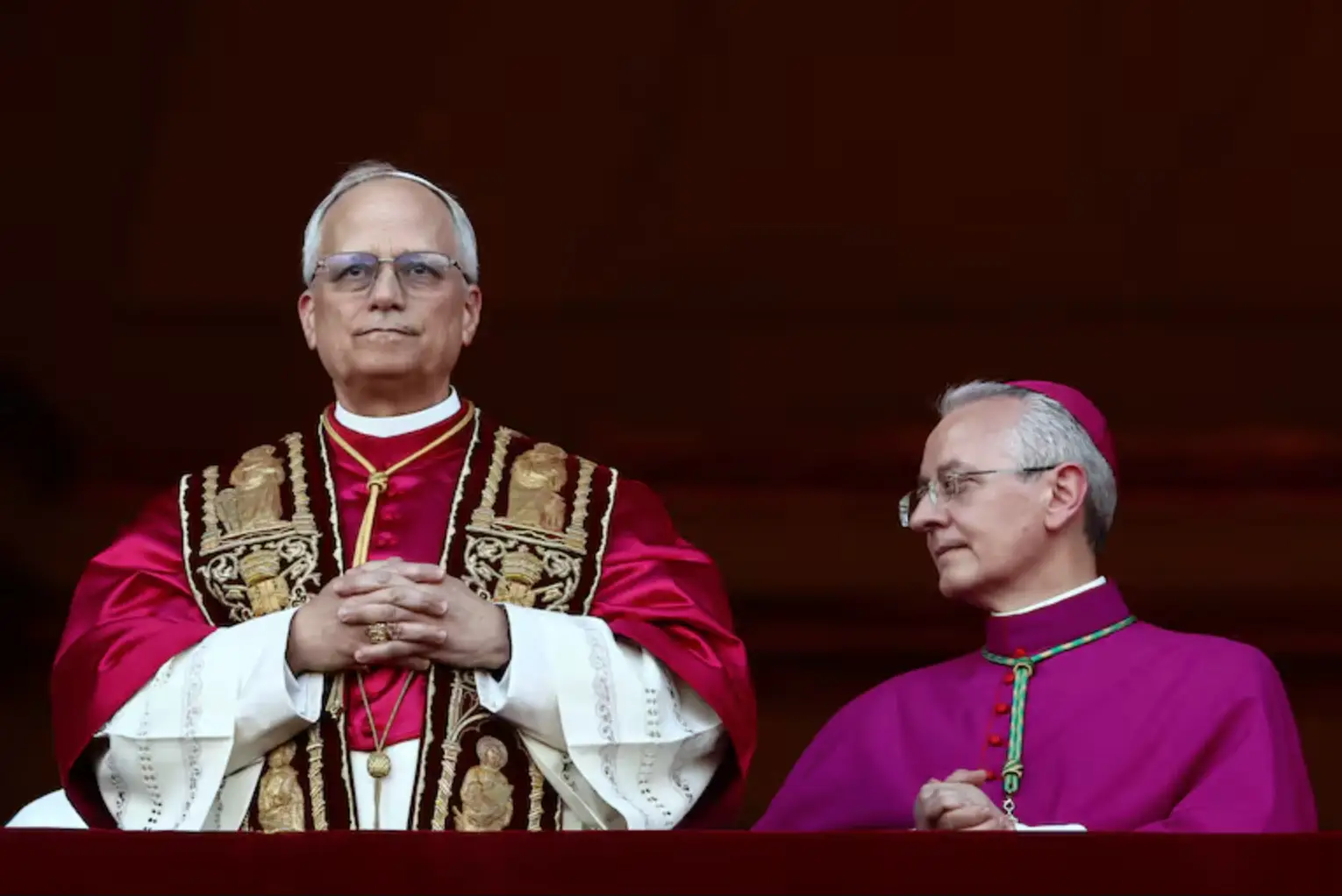Most media outlets and people on social media, even Catholics, are trying to categorize the new pope as progressive, conservative, or moderate. These are inadequate categories for understanding the Church’s challenges.
The election of the new pontiff, Leo XIV, caused the entire world to ask questions about the future of Catholicism and its impact on global geopolitics . The great obstacle to understanding the complexity of what is happening in the Catholic Church these days is that many try to categorize the pope as progressive, conservative, or moderate. These categories, whether left or right, are inadequate for understanding the current pope.
They prevent us from understanding the nature of the decisions made when choosing the Apostle Peter’s new successor and how the Church addresses the social, cultural, and political challenges facing today’s world.
Generally, even in cinema, the idea that Benedict XVI was a conservative pope and that the great progressive reforms were carried out by Francis has been consolidated. Misconceptions about what each person did are repeated in all media outlets, and actions and ideas are attributed to each other to maintain the bias of this erroneous classification.
Narrative about Benedict and Francis
The truth is that Benedict XVI made a great clean sweep on the issue of abuse. He was called “God’s street sweeper .” He demanded that accusations be brought before the courts and not handled solely within the Church. He also made major internal transformations within the Church without publicity. His encyclical ” Caritas in Veritate” is one of the best social encyclicals. He was known as the “green pope” for being the first to engage in sustained reflection on environmental issues. That’s not the perception many have.
The same is true of Francis: his constant condemnation of abortion, his criticism of so-called gender ideology, surrogacy, and euthanasia, are not included in analyses of the “progressive pope .” This would clearly make him appear conservative.
It all depends on how the narrative is constructed, with excerpts from here and there, repeated ad nauseam. The Church’s doctrine hasn’t changed, nor will it change. It doesn’t depend on the figure of the Pope, because Catholicism opposes everything that violates human dignity , be it abortion, euthanasia, human trafficking, or any form of exploitation or disposal of human beings, as if they had no dignity. For the Catholic Church, this isn’t a question of conservatism or progressivism. It’s a question of fidelity to the anthropological and ethical foundations of Christianity.
Conclave: Internal tensions?
There’s no struggle over doctrine, but rather over pastoral , theological, and spiritual emphasis. There’s internal tension within the Church. It’s a question of styles, of forms of pastoral leadership, of choices and actions, of what’s prioritized on the agenda of challenges . And that could influence the cardinals’ choice of a new pope, considering who can lead the Church in a new era. But that’s the reason, and not what we see in fiction, like the movie “Conclav” (Conclave). It seems more like a struggle between company executives or politicians fighting for power. This doesn’t mean there aren’t tensions and power struggles. But it has to do with priorities, not with changes in the substance of the Catholic faith.
The Church places faith in Jesus Christ and his message at the center of its mission. Everything else serves this purpose and is its reason for being: evangelization. What a pope is most concerned about is that the Church fulfill its mission in the world. This is the horizon for understanding and trying to understand choices, decisions, and emphasis.
When Francis referred to homosexuals, he said, “Who am I to judge?” Many interpreted this as a doctrinal shift. What he actually did was put into words what was already written in the Catechism of the Catholic Church (largely written by Ratzinger in 1992 ): homosexuals “must be received with respect , compassion, and sensitivity. Every sign of unjust discrimination must be avoided toward them.” And Francis expressed the same doctrine as always. But his attitude and actions made a difference for millions of people .
Time for reforms
The new pontiff, Robert Prevost, chose the name Leo XIV, inspired by Leo XIII (1810-1903). He is remembered as the pope of great social reforms, the initiator of the Church’s modern social doctrine , who addressed the labor issue by confronting the social problems generated by the Industrial Revolution.
Prevost understands that the great current challenge is a new revolution, considering factors such as artificial intelligence. His profile shows great sensitivity toward the poorest , workers, and migrants.
Born in the United States (Chicago, 1955), with training in mathematics, philosophy, theology and canon law, he lived a large part of his priesthood in Peru , as a missionary, and then in Rome, as superior of the Augustinian order and, finally, as prefect of the Congregation for Bishops and president of the Pontifical Commission for Latin America.
Leo XVI: Who is he and what does he think?
He was appointed Cardinal by Pope Francis in 2023. He is a man of solid education, fluent in several languages, with profound missionary experience, and a broad understanding of the universal Church.
Many wonder what he thinks about certain controversial issues. The answer is certain: what the Catholic Church teaches, just like the previous ones. His sensitivity and willingness to engage in dialogue with everyone is another matter. This can be seen by understanding his character as a priest and later bishop.
Always approachable, straightforward, and engaging in conversation, yet remaining steadfast in his convictions . One need only look at his first homilies and speeches as pontiff to recognize that his ideas are clear, firm, and at the same time filled with love, humility, and sensitivity for humanity and the tragedies that afflict it today. He is not interested in accommodating his discourse, but rather in remaining faithful to his mission.
A man of peace in the face of wars
Even before being elected pope, he spoke out against the war in Ukraine. His first diplomatic action was a call to Zelensky , who invited Leo XIV to an apostolic trip to the country. “Such a visit would bring true hope to all believers and all our people. We have agreed to stay in touch and organize a personal meeting in the near future,” the president declared at the time. In fact, the Vatican has long been working to recover Ukrainian children deported to Russia.
This Sunday, May 12 , he referred to dialogue and the importance of working for world peace as a priority. These are some of his expectations for his ministry. “In the current dramatic scenario of a third world war in limbo, as Pope Francis has repeatedly affirmed, I too address the greats of the world , repeating the ever-present appeal: ‘Never again war!’ (…) I am deeply saddened by what is happening in the Gaza Strip ; ceasefire immediately! May humanitarian aid be provided to the exhausted civilian population and all hostages be released. (…) I welcomed the announcement of the ceasefire between India and Pakistan , and I hope that through the upcoming negotiations a lasting agreement will soon be reached.”
Contemporary controversies and debates
On his X account, Robert Prevost shared articles harshly criticizing US immigration policy. He criticized DJ Vance for using Catholic doctrine to justify discrimination . This earned him several attacks on social media.
Slander has also circulated as if he had covered up cases of abuse. But the truth is that he was relentless in his response to abuse by clergy in Peru, although he was slandered by groups the Church exposed as abusive.
According to journalists Pedro Salinas and Paola Ugaz, who published the stories of victims of the Sodalicio de Vida Cristiana group , which was dissolved by Pope Francis, Prevost gave them his unconditional support for their investigation. He was one of the few bishops willing to get to the bottom of the matter. In this sense, it is to be hoped that Benedict and Francis’s purifying approach to abuse will continue.
Defense of the Church
In 2012, he expressed strong concern about the distortion of public opinion regarding Catholicism : “The Western media are extraordinarily effective in promoting widespread public sympathy for beliefs and practices contrary to the Gospel. (…) At most, the media tolerate religion as something inane or quaint, as long as it does not actively oppose the positions on ethical issues that the media assume as their own. However, when the voice of religious people is raised against these positions, the media puts religion in the spotlight, characterizing it as ideological and insensitive to the supposedly vital needs of people in the contemporary world. The sympathy for anti-Christian life choices that the media encourages is embedded in public opinion so brilliantly and ingeniously that when people hear the Christian message, it inevitably appears ideologically and emotionally cruel, in contrast to the supposed humanitarianism of the anti-Christian perspective.”
*Text originally published on Diálogo Político (DP) website.












